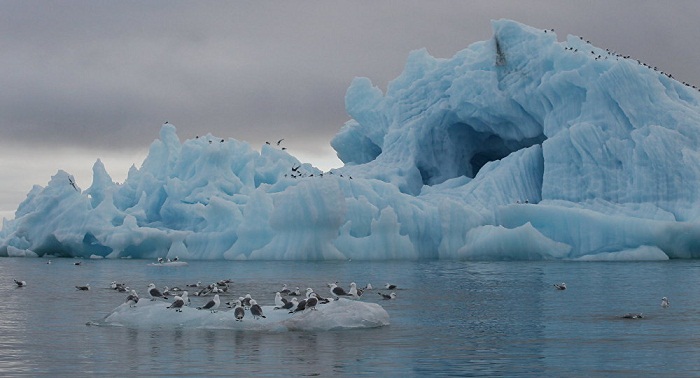Arctic changed beyond recognition: 95% of Perennial ice since 1984 vanished

The ice cover of the Arctic is a made up of perennial ice, which consists of thick multi-year ice floes and is less vulnerable to summer temperatures, and seasonal ice which grows and melts through the year.
Each September ice volumes reach its minimum, which is why scientists regard this month as a milestone. Using data from buoys, weather stations, satellites and computer models, NASA estimated that ice cover at least four years old has shrunk from 1,860,000 square kilometers in September 1984 to 110,000 square kilometers in September this year. Over about thirty years Arctic sea ice has been declining at a rate of 13.3% per decade.
Earlier NASA`s researcher Josefino Comiso warned that if the permanent ice cover disappears, "the entire Arctic Ocean climate and ecology would become very different."
According to Ketil Isaksen of the Norwegian Meteorological Institute, shocking effects of climate change can be best observed in Svalbard Archipelago, midway between the North Pole and continental Norway, as the place can be regarded as a model of what`s going on in the Arctic at the moment.
While the normal yearly average in Svalbard is minus 6.7 C, this year the temperature in main settlement, Longyearbyen, is expected to spike above zero for the first time on record.
"This is a little bit shocking. If you had asked me five or 10 years ago, I could not have imagined such numbers in 2016." Isaksen said, adding that each of the past 73 months on the archipelago has been warmer than average.






















-1745485667.jpg&h=190&w=280&zc=1&q=100)
























